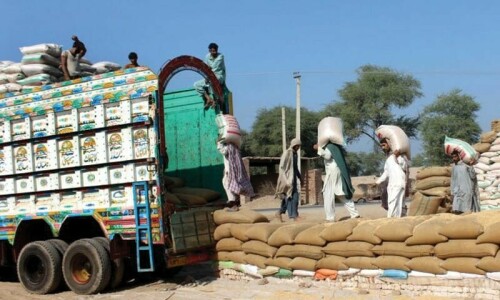LAHORE: The scope of Khadim-i-Punjab Ujala programme has been widened (4,321 to 20,000 schools) in the last one year but the cost of the project has disproportionately gone up 15 times – from Rs1.3 billion in the last bid to an estimated Rs17 billion now.
The Energy Department justifies the price escalation, saying the complexity of the plan has grown phenomenally, with stringent deadlines. Each increasing component – remote monitoring, specialised wiring, designated gadgets and security of equipment – has added to the cost of the project.
The critics, however, question the ‘complexity’ of the project with the claim that it is simple provision of solar systems to schools. The technology is now so simple that people have it on their rooftops, they say. The cost has increased either because of some mala fide intention or sheer incompetence which is something intolerable, goes the argument.
What makes the matter worse is similar increase in the consultancy cost, that is, from Rs15 million to Rs500 million though the consultant is same in both bids.
This increase did catch attention of the Planning and Development (P&D) department, which asked the Energy Department to come up with a justification for increase. The Energy Department, on its part, says consultancy cost is within the permissible limit of three per cent of the project cost.
The Punjab government, encouraged by the Asian Development Bank which had spared some money under the clean energy head, conceived the plan to solar-energise 4,321 off-grid schools last year. It hired a consultant and floated tenders. The winning contractor quoted a price of Rs1.3 billion. The bidding process was later challenged in court for contractual hiccups and it did not materialise.
The Energy Department, meanwhile, increased the numbers and rewrote the entire bidding process with the help of the same consultant and came up with new targets and cost estimates. However, things got complicated when the P&D department started the scrutiny and pointed out some glaring mistakes such as missing feasibility report, massive increase in cost of project and consultancy, its commercial value and even basic energy generation potential. It wrote that at least three different peak generation figures (31MW, 45MW and 50MW) were quoted in the pre-feasibility report, indicating that consultant was not clear about the yield of the project.
Similarly, contradictory number of schools and rooms to be put on solar systems were also found in the reports.
The P&D also pointed out that payback period of 10 years also did not correspond to other calculations, which indicate it at 16 years. “However, if the calculations are based on reality of the project, the payback period is 50 years. This project at this cost is not viable.”
As for the payback time controversy, the Energy Department says it should be taken as a social, not a commercial, project. Thus payback time should not matter.
In its observations, the P&D department also pointed out the cost factor and asked the Energy Department to justify it. According to it, the price of a school’s solarisation has increased by 2.5 times – from Rs311,039 in the previous bid to current Rs765,710. Similarly, per room cost has gone up by 210 per cent – from Rs127,526 to Rs265,681. The consultancy cost, it says, has gone up by 6.1 times – from Rs4,397 to Rs26,909 per school.
“One must keep in mind that cost in the previous bid included all taxes, whereas the new estimates exclude taxes. If these taxes are included, the new price would skyrocket to over Rs20 billion putting even bigger question mark on the feasibility of the project,” explained an official of the P&D Department who spoke on the request of anonymity.
Besides, the consultant was hired allegedly by skipping a transparent process and bending the PPRA rules (a charge the Energy Department denies) and the department is pushing for approval of the PC-I without any conclusive feasibility study. This year, funds for half of the schools (10,000) are to be released.
“If the government goes ahead, as the case is up for consideration of the Provincial Development Working Party (PDWP), things may go haywire,” warned the official.
Published in Dawn, July 22nd, 2017












































Dear visitor, the comments section is undergoing an overhaul and will return soon.